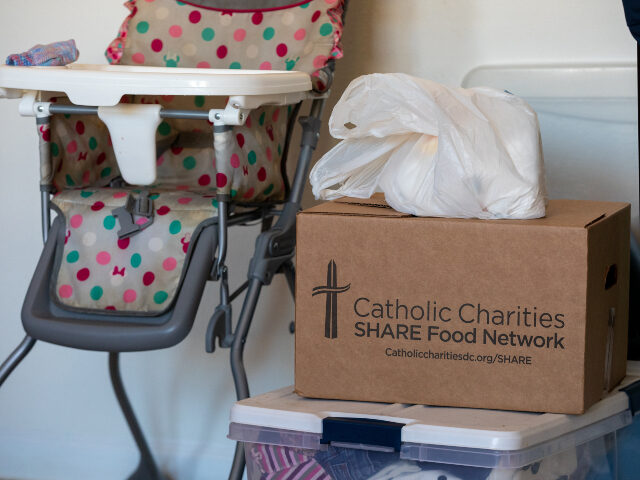Supreme Court Sides With Catholic Charities in Case About Tax Exemptions for Religious Organizations

The Supreme Court unanimously sided with Catholic Charities Bureau on Thursday, ruling that Wisconsin discriminated against the organization by denying tax exempt status and violated the First Amendment’s protection for religion.
Wisconsin has a law, similar to most states and the federal government, that exempts certain religious organizations from paying unemployment compensation taxes. The statute exempts nonprofit organizations “operated primarily for religious purposes” and “operated, supervised, controlled, or principally supported by a church or convention or association of churches.” Catholic Charities Bureau and four of its sub-entities tried to obtain the exemption in 2016 as an organization controlled by the Roman Catholic Diocese of Superior, Wisconsin.
After years of litigation, the Wisconsin Supreme Court ultimately denied the exemption, ruling that Catholic Charities Bureau was not “operated primarily for religious purposes” because they do not engage in proselytization or limit their charitable services to Catholics. However, Catholic Charities Bureau argued that Catholic teachings do not permit “misus[ing] works of charity for purposes of proselytism.”
“There may be hard calls to make in policing that rule, but this is not one,” Justice Sonia Sotomayor wrote for the court.
“When the government distinguishes among religions based on theological differences in their provision of services, it imposes a denominational preference that must satisfy the highest level of judicial scrutiny,” she continued. “Because Wisconsin has transgressed that principle without the tailoring necessary to survive such scrutiny, the judgment of the Wisconsin Supreme Court is reversed, and the case is remanded for further proceedings not inconsistent with this opinion.”
Eric Rassbach, an attorney at Becket representing the organization, said the Supreme Court’s ruling “reaffirms the core First Amendment principle that government cannot prefer or favor any one religion over another.”
“This decision therefore protects the right of religious groups of all stripes—including Jews, Muslims, and Hindus—to care for the poor and needy consistent with their sincere religious beliefs about the nature of charity,” Rassbach said in a post to X.
“And the decision makes clear that religious exercise is not just what goes within the four walls of a church on Sunday, but includes what happens when religious Americans serve their communities,” he continued. “Finally, the fact that the opinion was unanimous underscores that religious liberty is not a ‘left’ or ‘right’ issue, but a fundamental freedom that protects all Americans. That is something we should all take pride in.”
The Supreme Court reversed the Wisconsin Supreme Court’s ruling and remanded the case for further proceedings consistent with its opinion.
The case is Catholic Charities Bureau v. Wisconsin Labor and Industry Review Commission, No. 24-154 in the Supreme Court of the United States.
Katherine Hamilton is a political reporter for Breitbart News. You can follow her on X @thekat_hamilton.